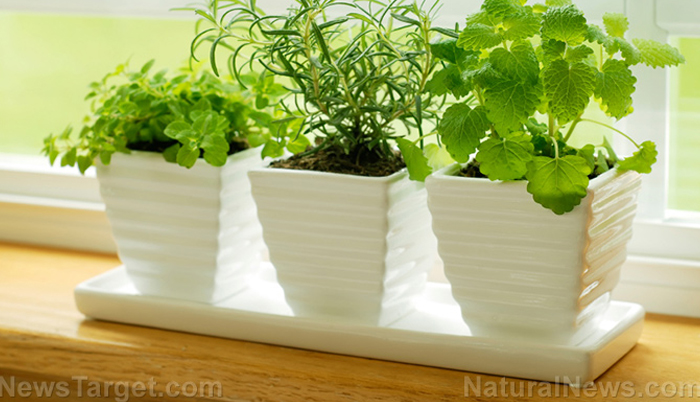![]() Home > Lifestyle
Home > Lifestyle
Urban Homesteading: Prepping Tips For Those Who Live In Apartments Or Have Limited Space

![]() March 13th, 2018 | 09:50 AM |
March 13th, 2018 | 09:50 AM | ![]() 740 views
740 views
NATURALNEWS.COM
As a prepper, how can you possibly create your own garden and produce your own food if you live in a small house or apartment? This topic was addressed recently in a SurvivalSullivan.com article titled “The Essential Guide to Apartment and Urban Homesteading.” In it, author Heath Brower notes that the very first thing you should do even before you plant your first seed is check the regulations in your community. Believe it or not, the Home Owners Association (HOA) is starting to crack down on the development of edible gardens, so make sure that everything you plan on doing is in compliance with existing law.
Once you have double-checked and confirmed that you will not face any legal challenges moving forward, you can start building your garden. As Brower explains in the article, “Start on the edge of your property, and here will go mostly fruit trees and some vegetables. As you work towards your house, you will gradually make it more and more garden for strictly vegetables and herbs.” Brower goes on to say that it’s a good idea to maximize your limited space by hanging baskets and creating vertical gardens full of edibles.
PopularMechanics.com went into detail about how to build one of these vertical gardens, and truth be told, the process can be a bit tedious. It requires preppers to first build a frame against a wall that you want to grow your vertical garden on, attach plastic sheeting, fabric, and then establish an irrigation system with a fertilizer injector and water source. This may sound a bit complicated, but if you want to grow a lot of food in a small amount of space, then a vertical garden is well worth the trouble.
Preppers that are serious about growing their own food in the event of a large-scale crisis should take it upon themselves to learn everything they possibly can about composting. If you live in a small house, look into “hot composting,” which is a method that focuses on finding a balance between materials that are high in carbon and nitrogen. If you turn your compost every couple of days to make sure that it is spongy wet, you end up with black dirt that is extremely rich in microbes and nutrients, and better still, this high-quality dirt will be achieved in just two weeks as opposed to months with the traditional method.
If you live in an apartment, however, then your only choice as far as composting is concerned may be to pick up a no smell and no mess compost bin. Here again, it would be a good idea to learn about hot composting because there is hardly any odor when the process is done correctly.
When it comes to collecting water, there are a number of different options. In an urban environment, you can install barrels for your gutters so that the rain water can be collected. However, because some people have issues with the chemicals that are used to make shingles mixing with this water, other options include using a tarp or digging a retention pond to store excess water. If you live in an apartment, collecting water can be a bit more difficult but it is certainly still doable. You can try to set up rain collectors on your balcony, but the biggest problem here is going to be the fact that rain doesn’t typically fall in heavy quantities in these areas.
Of course, there’s much more to homesteading than setting up vertical gardens, composting and collecting water, and for further information, be sure to read Heath Brower’s article at SurvivalSullivan.com. Don’t let the fact that you live in a small house or an apartment prevent you from prepping for a SHTF scenario. It may make things a bit more challenging, but it will be well worth it in the end.
Source:
courtesy of NATURALNEWS
by Jayson Veley
If you have any stories or news that you would like to share with the global online community, please feel free to share it with us by contacting us directly at [email protected]